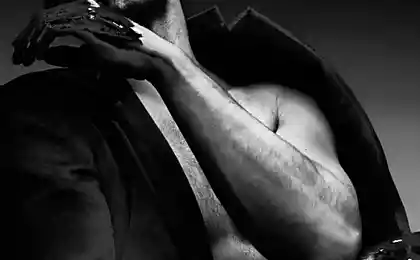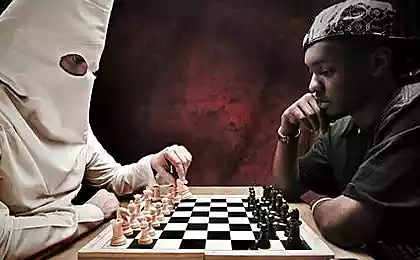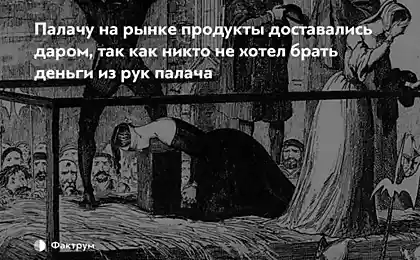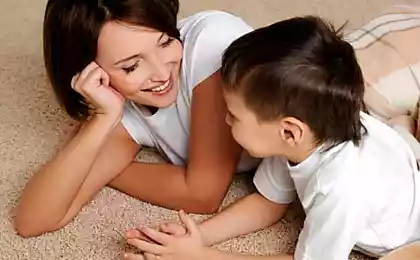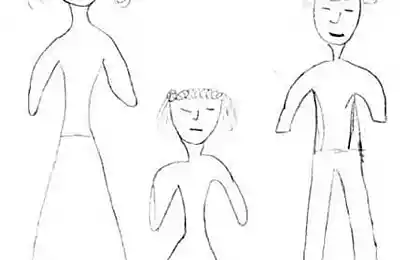196
Find out, as in the Palach family, as in the Sacrifice.
15-year-old Dasha went with her friends to the disco. She promised her parents that she would be back no later than 22:00. It's about midnight and my daughter's not home. Mother and grandmother do not find a place, drink valerian. The father in the chair reads the newspaper.
This is a common situation that happens in every family.
Why is this happening? What should I do?

Shakespeare said, “The whole world is a theater, and the people in it are actors.” Often in our lives the situation of the “executioner-victim” is lost. Each of us has the right to choose our own role. A.P. Chekhov decided for himself that "it is better to be a victim than an executioner."
In our situation, at first glance, mother and grandmother suffer, and Dasha is their executioner.
What if we analyze the events from Dasha’s point of view? After all, for modern youth, a disco is not only (and not so much!) a dance floor, but also an opportunity for informal, emotional communication with peers, uncontrolled by adults.
Appetite comes with eating. So the heat of passions flares up gradually. The time of his death is the time of his parents. To leave in the midst of fun, feeling like a victim of a family regime, above the strength. And if you still sacrifice your pleasure, come home on time - you are unlikely to smile nicely to strict parents. You’ll probably wish them good night and go to your room to cry in your pillow and dream about the time when you can break out of this captivity.
Why do mother and grandmother suffer so much? Because in anxiety for the child, they have already painted pictures in their imagination of the most terrible development of events: “beaten”, “raped”, “drawn to an unfamiliar place”, “alcohol, drugs”, “bad company” – you can go on the list of frightening options indefinitely.
Why is my father seemingly calm?Men, unlike women, do not have as much imagination, they usually solve problems as they come. A man tends to be more self-confident because he tends to trust others more, in this case his daughter. Otherwise, he wouldn't let her go to the evening disco.

How are they supposed to meet Dasha, who broke her promise and came home at midnight?
It is appropriate to talk about empathy. Unlike empathy, empathy is feeling. That is, instead of reasoning “what would I do in his place”, we should try to understand what exactly the child feels in his place, how it would be better to do it in his place. You can agree with the child, you can disagree, but It is necessary to understand his condition, his thoughts, his feelings, his reasonings, and learn to respect them, to coordinate with them his words, his actions..
Otherwise, there is a disagreement with your child. Otherwise, “you never understand me!”, “you never hear me!” Otherwise, there is a firm conviction of the inevitability of a “conflict of fathers and children.” What can be avoided if you do not distribute the roles according to the role: Child victim, adult executioner.
So, remembering your youth, feel in Dasha’s elated mood after a party, feel in her anxiety about the upcoming punishment for being late, postpone the “debriefing” the next day (but not in the morning!). And in the evening at the family council, carefully (!) share with the girl her evening experiences, not thickening the colors with far-fetched horrors, and suggest to her herself how to solve this problem.
If the previous 15 years the child was properly brought up in an atmosphere of love, mutual respect and mutual support, then he will understand everything correctly and will continue to select options for his behavior, combining his own interests and the interests of people close to him.
7 principles of a strong mother that you need to teach your daughter
Older daughter or "elder sister syndrome"
It is at this age that the process of self-affirmation of the personality occurs in adolescents. In the case of illiterate behavior of parents, dictates, excessive pressure, the child often develops an inferiority complex. And this is a direct path to a whole bunch of problems in his adult life. published
Author: Lyudmila Andrievskaya
P.S. And remember, just by changing your consciousness – together we change the world!
Source: detkiclub.com/articles/112011-uznayte-kto-v-semie-palach-a-kto-zhertva
This is a common situation that happens in every family.
Why is this happening? What should I do?

Shakespeare said, “The whole world is a theater, and the people in it are actors.” Often in our lives the situation of the “executioner-victim” is lost. Each of us has the right to choose our own role. A.P. Chekhov decided for himself that "it is better to be a victim than an executioner."
In our situation, at first glance, mother and grandmother suffer, and Dasha is their executioner.
What if we analyze the events from Dasha’s point of view? After all, for modern youth, a disco is not only (and not so much!) a dance floor, but also an opportunity for informal, emotional communication with peers, uncontrolled by adults.
Appetite comes with eating. So the heat of passions flares up gradually. The time of his death is the time of his parents. To leave in the midst of fun, feeling like a victim of a family regime, above the strength. And if you still sacrifice your pleasure, come home on time - you are unlikely to smile nicely to strict parents. You’ll probably wish them good night and go to your room to cry in your pillow and dream about the time when you can break out of this captivity.
Why do mother and grandmother suffer so much? Because in anxiety for the child, they have already painted pictures in their imagination of the most terrible development of events: “beaten”, “raped”, “drawn to an unfamiliar place”, “alcohol, drugs”, “bad company” – you can go on the list of frightening options indefinitely.
Why is my father seemingly calm?Men, unlike women, do not have as much imagination, they usually solve problems as they come. A man tends to be more self-confident because he tends to trust others more, in this case his daughter. Otherwise, he wouldn't let her go to the evening disco.

How are they supposed to meet Dasha, who broke her promise and came home at midnight?
It is appropriate to talk about empathy. Unlike empathy, empathy is feeling. That is, instead of reasoning “what would I do in his place”, we should try to understand what exactly the child feels in his place, how it would be better to do it in his place. You can agree with the child, you can disagree, but It is necessary to understand his condition, his thoughts, his feelings, his reasonings, and learn to respect them, to coordinate with them his words, his actions..
Otherwise, there is a disagreement with your child. Otherwise, “you never understand me!”, “you never hear me!” Otherwise, there is a firm conviction of the inevitability of a “conflict of fathers and children.” What can be avoided if you do not distribute the roles according to the role: Child victim, adult executioner.
So, remembering your youth, feel in Dasha’s elated mood after a party, feel in her anxiety about the upcoming punishment for being late, postpone the “debriefing” the next day (but not in the morning!). And in the evening at the family council, carefully (!) share with the girl her evening experiences, not thickening the colors with far-fetched horrors, and suggest to her herself how to solve this problem.
If the previous 15 years the child was properly brought up in an atmosphere of love, mutual respect and mutual support, then he will understand everything correctly and will continue to select options for his behavior, combining his own interests and the interests of people close to him.
7 principles of a strong mother that you need to teach your daughter
Older daughter or "elder sister syndrome"
It is at this age that the process of self-affirmation of the personality occurs in adolescents. In the case of illiterate behavior of parents, dictates, excessive pressure, the child often develops an inferiority complex. And this is a direct path to a whole bunch of problems in his adult life. published
Author: Lyudmila Andrievskaya
P.S. And remember, just by changing your consciousness – together we change the world!
Source: detkiclub.com/articles/112011-uznayte-kto-v-semie-palach-a-kto-zhertva


